Frequently Asked Questions
Get answers to common questions about Beckman Center fellowships. Please also read our application guide for more detailed information, including the application process and selection criteria.
Jump to
Life at the Science History Institute
Our fellows’ research projects cover a wide variety of subjects. Fellows studying the history of 16th-century alchemy will find themselves in conversation with others researching 20th- and 21st-century nanotechnology or pharmaceuticals. You can read about the research interests of current and former fellows on our website.
When applying for short-term, distinguished, dissertation, and postdoctoral research fellowships, what matters is the use that can be made of our collections. Previous fellows have self-identified with environmental history, business and labor history, art history, and science and technology studies, among other fields. We also welcome applications for curatorial fellowships from scholars from a variety of backgrounds intersecting with the history of science.
All of our fellowships are residential. This means that you need to live within 20 miles of Philadelphia and be present at the Institute for regular meetings, events, and research. While you may work remotely some days, we ask that you make the Institute your primary place of work. Extended periods of absence are only permissible for medical emergencies or other special circumstances to be approved in advance.
Curatorial fellows’ work schedules are determined in consultation with their staff supervisors according to departmental needs. All other fellows have no set hours, but should be mindful that although staff work flexible hours, they are almost always available between 10am and 4pm. Obviously we like everyone to be around during the workday as much as possible to enable community interaction and collaboration, but if there is a clear benefit to your research for you to work elsewhere, this can be arranged. Postdoctoral and dissertation fellows have access to the building and can also work before or after hours, including on weekends.
We encourage our fellows to attend conferences and colloquia and engage with local academic communities. Distinguished, dissertation, and postdoctoral research fellows do not need to ask for permission to travel to conferences or to attend colloquia, but should always notify us of your absence. Short-term fellows are asked to plan their travel around their fellowships but may take brief trips without penalty. Curatorial fellows must consult with their supervisors before planning any travel.
All Science History Institute fellows should identify themselves as such in any presentations made during the academic year in which they hold their fellowship. If you have another affiliation, listing dual affiliation is entirely appropriate.
During the semester we ask that all fellows attend weekly Beckman Center meetings, regular Fellows’ Talks, our Work-in-Progress Workshops, and some special events at the Institute. We ask that each fellow give at least one Fellows’ Talk, and we ask each long-term fellow to also contribute at least one Work-in-Progress.
The Othmer Library is open for fellows Monday through Friday, 9am to 5pm. Most of our books are in closed stacks, so you need to request books to check out. The process is easy, and books are made available quickly. Reference books are accessible in our reading room for everyone but cannot be checked out.
Once in residence you will be able to apply for a PennCard with visiting student/scholar status, which grants full access to the University of Pennsylvania’s libraries, online journals, and databases and will allow you to make use of some other Penn facilities.
The Science History Institute is committed to ensuring that everyone can experience our collections, research, and facilities. You can read more about our efforts on our accessibility page. We invite you to share how we can be more accessible to you while you are here as a fellow. Please email accessibility@sciencehistory.org or call 215.925.2222 with requests, questions, or feedback.
You will be paid monthly throughout your stay in regular installments. Your stipend will be paid directly into your bank account unless you opt to receive paper checks. Your stipend can also be wired to an account abroad, but it is not recommended; instead we recommend that international fellows open a no-fee bank account locally.
On your first day you will be introduced to the Institute through orientations about our building, library, computer procedures, and so on. We provide you with guides to the Institute and do everything we can to make your transition a smooth one. Please note that since you will meet with several staff members during your orientation, it is vital that we know the exact date of your arrival at the Institute at least three weeks in advance and that you arrive promptly at the scheduled time.
Yes! We think it’s important to connect ongoing scholarship to audiences beyond academia. Though we do so directly through talks and regular public lectures, we also encourage fellows to take part in the Institute’s broader public offerings, both as facilitators and visitors. We see doing so not only as a public service and an important part of a scholar’s life but also as a great way to develop or enhance public speaking, teaching, and multimedia skills—all of which are becoming increasingly important to working both inside and outside the academy. New fellows are introduced to staff in departments around the Institute and invited to propose or volunteer for projects within their areas of interest.
Past fellows have developed public programs, given lectures, taken part in online Twitter chats, written for the Institute’s publications, curated exhibitions, and more. For more information about our outreach activities, contact fellowships@sciencehistory.org.
The Beckman Center Online Application
Beckman Center fellowships require an online application. We do not accept paper applications. If you are having trouble with the online application, please contact us at fellowships@sciencehistory.org.
Beckman Center applications usually become available by the fall preceding a fellowship year. For example, you can expect applications for 2024–2025 fellowships to be available in October 2023.
We strive to ensure that all candidates receive an answer by April 15. Please see the application guide for a more detailed timeline.
In the application form, you will provide the names and contact details of two referees unaffiliated with the Science History Institute. We will email those individuals with instructions on how to submit the letter through our website. Please inform them that you plan to use them as a reference and that they should have a letter ready to submit. Your referees will be asked to submit their references by two weeks after the application deadline.
When too many people are trying to submit applications at once, applicants sometimes receive an error message when submitting. This is especially common on the day of the application deadline. If you are having trouble, try again in a few minutes or a few hours. Another common problem has to do with an applicant’s browser; if you experience difficulty, try clearing your cache, quit and restart the browser, and then try to submit again. If you still encounter problems, you can send your application materials in a PDF or Word document to fellowships@sciencehistory.org.
Visas for International Fellows (Beckman Center fellows only)
Beckman Center short-term and distinguished fellowships, dissertation fellowships, and postdoctoral research fellowships are open to applicants of any nationality with the necessary academic credentials. For all other fellowships, including curatorial and NEH fellowships, citizenship and residence restrictions apply. Please see the Available Fellowships page for details pertaining to each fellowship.
International short-term and distinguished fellows, dissertation fellows, and postdoctoral research fellows will be provided with visas. If we are providing you with a visa, a staff member will contact you in advance of your fellowship with instructions for obtaining that visa. Once you receive this information, you should begin the process as soon as possible, as it can take up to four months and potentially longer. The Science History Institute is able to provide only J-1 visas to international fellows. These visas are intended generally, barring extenuating circumstances, to begin when the scholar’s residence at the Institute begins. The fellow must without exception be in residence for a visa to be active. Absences of more than 30 days will result in a forfeiting of the visa, as per U.S. requirements. We provide visas through the University of Pennsylvania and in compliance with the federal government. We are not visa specialists and recommend that all international scholars read their information for visiting scholars and contact their office directly with specific questions.
Excellent spoken and written English is essential. Once at the Institute, fellows are full members of the Science History Institute community, giving talks and participating in writing groups and discussions, and use English daily. For visa applications, the University of Pennsylvania has adopted new requirements for proof of competency in English, which can be satisfied with an interview, TOEFL scores, or educational or work experience in an English-speaking university. Please contact fellowships@sciencehistory.org if you have questions or concerns.
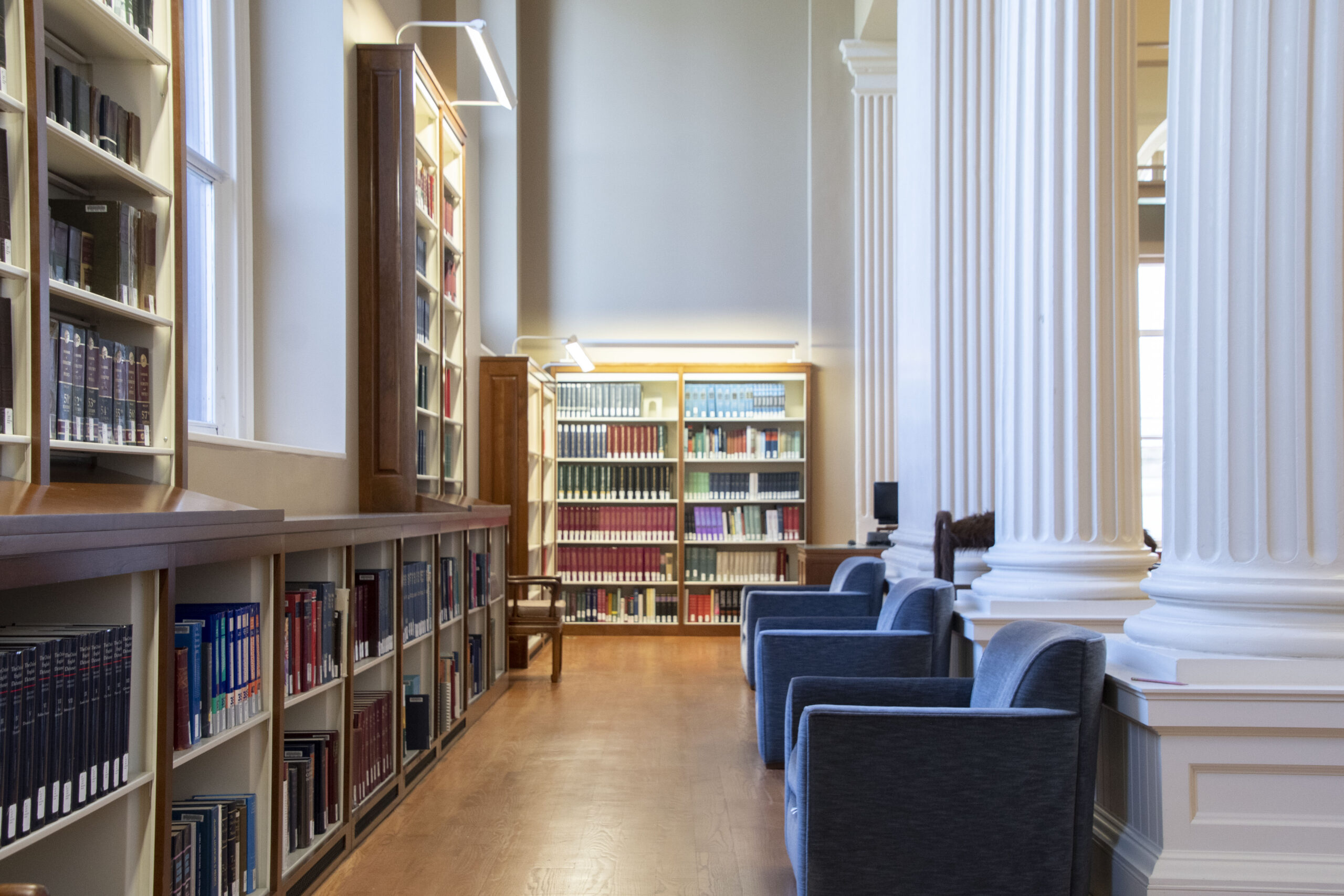
Available Opportunities
Peruse available Beckman Center short- and long-term residential fellowships and travel grants.

How to Apply
Access application forms and instructions for our fellowships and library travel grants.
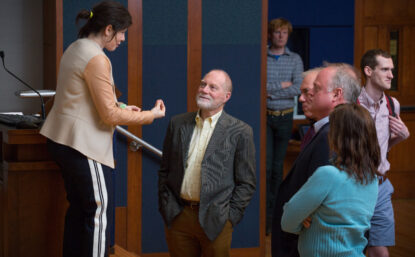
Meet the Fellows
Our scholars study a range of topics in the history and social studies of chemistry, chemical engineering, and the life sciences.
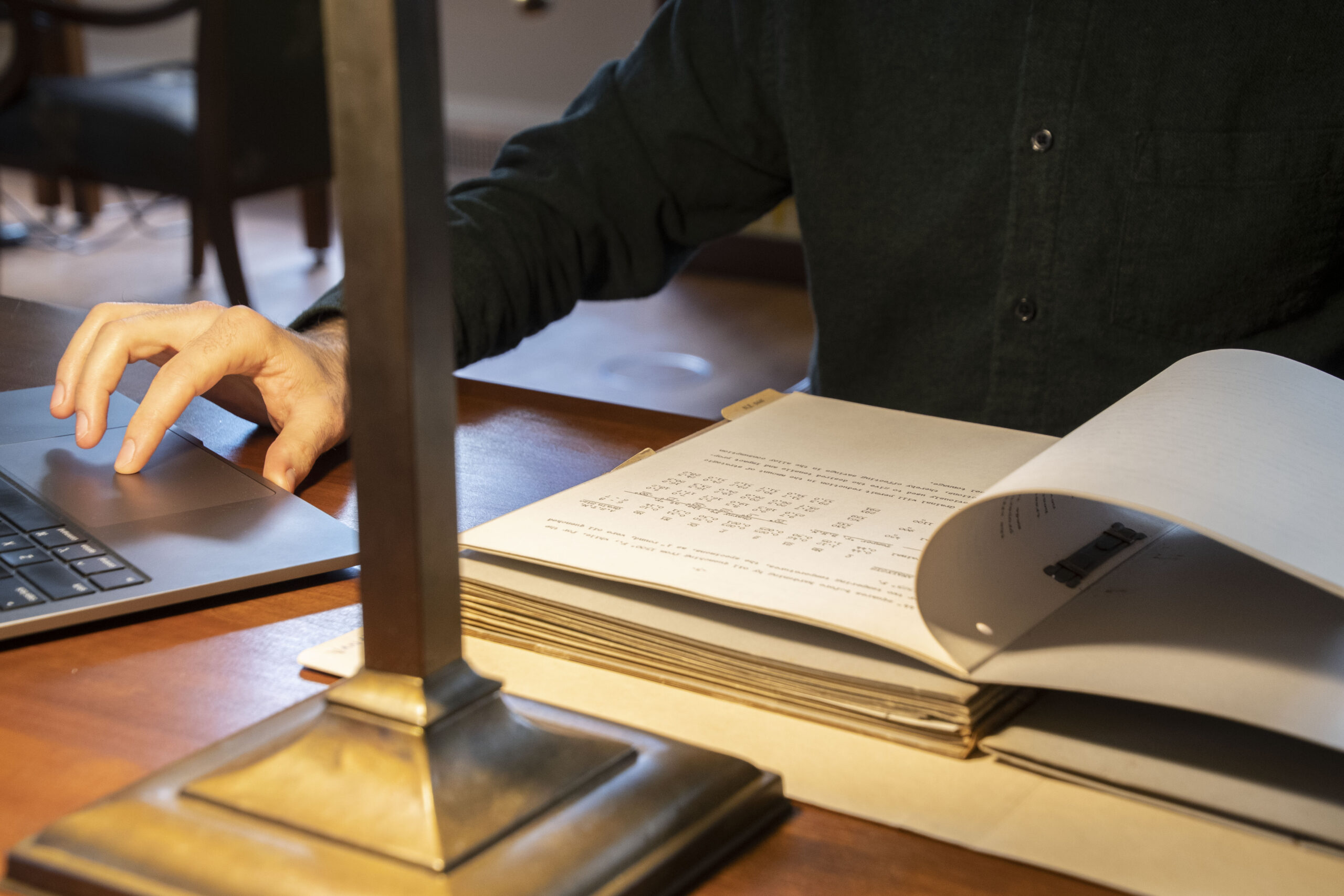
Application Guide
Optimize your fellowship application with this guide to candidate selection criteria and much more.
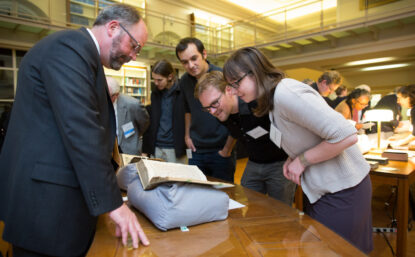
About Our Collections
At the Institute, we preserve historical materials related to scientific achievements from around the world.
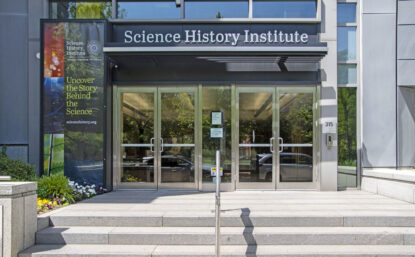
Named Fellowships
Learn about our named fellowships, their recipients, and the generous gifts that made them possible.
